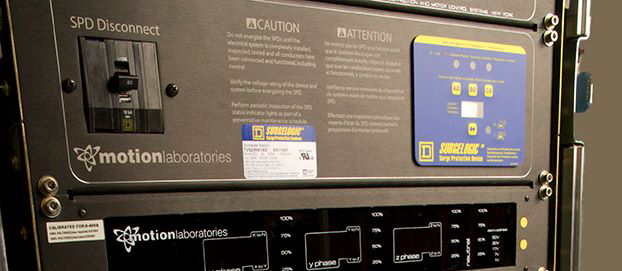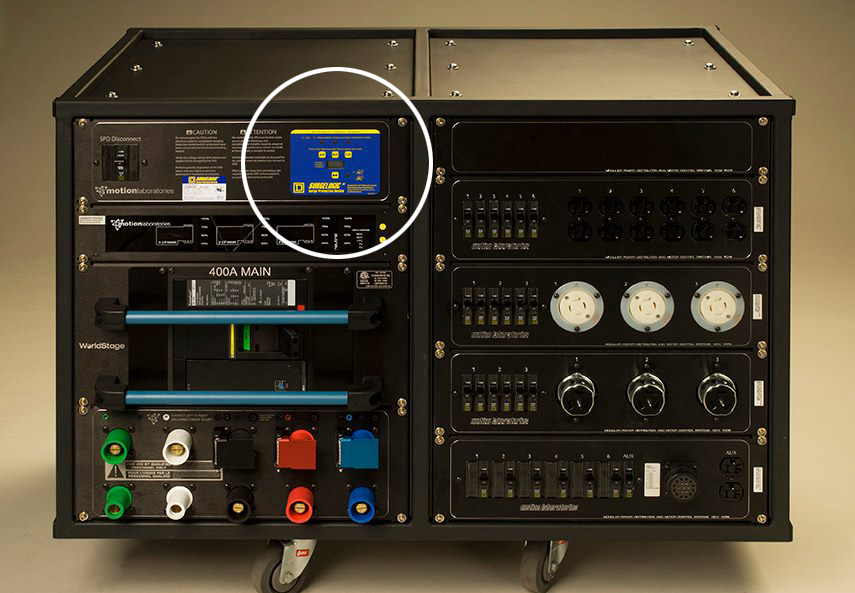Greg Quinkert from Motion Labs discusses their Surge Suppression Technology:

Surge Suppression Technology from Motion Labs
Digital and LED technology is sensitive to transient voltage (or spikes and surges). Each generation of microcircuit chips becomes faster, smaller and more densely populated. This technological progress comes with tremendous risks, as these new designs are less tolerant of small electrical disruptions, and are more susceptible to damage. Computer technology has evolved, and we rely more and more on this technology in our jobs. Disruptions in equipment can be extremely inconvenient and set back an entire workflow.
Some external sources of transient voltage include:
- • Lightning strikes
- • Utility grid switching
- • Electrical accidents
- • Heavy motors
- • Loads from nearby industries
There are also internal sources of transient voltage. For example:
- • Laser printers
- • Copiers
- • Air conditioner motors
- • Lights being turned on & off
We all know that safety is the number one priority of any job, but as well as protecting our crew, we should also protect our expensive equipment.

Our solution to this challenge is Surge Suppression Technology.
Motion Labs has designed a Portable Power Distribution System that incorporates four different levels of protection based on your application:
- Service Entrance
- Distribution
- Branch
- Point of Use
Service Entrance locations require the highest level of protection, while Point of Use requires the lowest. Typically with our equipment, the Distribution or Branch protection is required.
You may ask: I have circuit breakers, so why would I need Surge Protective Devices (SPDs)?
The two technologies provide separate functions. The circuit breaker is designed to protect your home, business, equipment and possibly even your life from an event such as a short circuit. The SPD is designed to protect your equipment from events such as extremely short duration electrical spikes.


